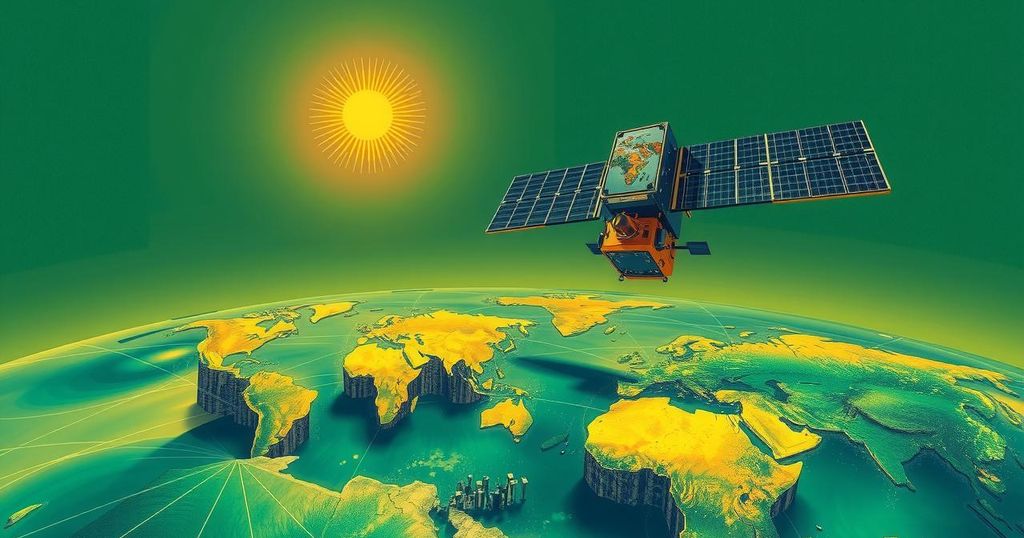Elon Musk’s Starlink Faces Challenges in South Africa Amid Regulatory Tensions

The conflict between Elon Musk’s Starlink and South Africa revolves around black empowerment regulations hindering the company’s operations. Musk’s claims regarding racial discrimination contrast with official statements indicating Starlink’s failure to apply for necessary licenses. Support from Communications Minister Solly Malatsi could offer an avenue for resolution, though significant political challenges persist, reflected in broader tensions with the U.S. government and other African countries.
The ongoing dispute involving Elon Musk’s Starlink and South Africa centers on the country’s black economic empowerment regulations. Musk claimed on social media that Starlink was prevented from operating in South Africa due to his race. However, the Independent Communications Authority of South Africa (Icasa) clarified that Starlink had not filed an application for a necessary operating license. The South African foreign ministry also stated that compliance with local laws is essential for foreign companies wishing to operate in the country.
For Starlink to launch its service, it must secure network and service licenses which stipulate a 30% ownership share from historically disadvantaged groups, predominantly black South Africans. This requirement stems from the country’s efforts to rectify economic disparities created by apartheid. Musk perceives these regulations as major obstacles to Starlink’s establishment in South Africa.
Starlink’s application issues were addressed in a submission to Icasa, suggesting that these ownership regulations hinder foreign entrants. Nevertheless, Clayson Monyela, a spokesperson for the foreign ministry, countered this by highlighting the successful operations of over 600 U.S. companies in South Africa adhering to local laws.
Support for Musk may arise from Communications Minister Solly Malatsi, who belongs to the Democratic Alliance (DA). This political party criticizes black empowerment laws, attributing them to cronyism and corruption. Malatsi hinted at potential policy changes to help Starlink bypass the ownership requirement, though this remains unresolved amidst possible political opposition.
Relations between the South African government and the U.S. have soured recently, exacerbated by rhetoric from Musk and former President Donald Trump regarding the country’s ownership laws. Musk condemned these laws as racist and claimed they contributed to a narrative of white genocide against South African farmers. These assertions have been widely discredited, reflecting broader tensions in U.S.-South Africa relations.
Starlink has encountered challenges in other African nations, where it seeks to expand its operations. For example, it received a 10-year license in Lesotho, following pressure from the Trump administration, despite criticism regarding lack of local ownership.
Currently, Starlink operates in over 20 African countries, including Somalia and Nigeria, where it aims to provide high-speed internet, especially in underserved areas. While the service has not been established in South Africa, there is significant potential for collaboration, particularly given that around 20% of South Africans still lack internet access.
As South Africa works towards universal internet access by 2030, the involvement of Starlink could present mutual advantages. In efforts to mend ties with the U.S., President Cyril Ramaphosa recently appointed former deputy finance minister Mcebisi Jonas as a special envoy, acknowledging the necessity of fostering a stable economic environment.
The contention surrounding Elon Musk’s Starlink and South Africa underscores significant legal and political complexities. The country’s black empowerment policies act as both a barrier and a focal point for broader diplomatic relations with the United States. As the South African government navigates these multifaceted issues, the possibility of Starlink contributing to the nation’s internet access goals remains uncertain, yet potentially advantageous. The outcome of this dispute could influence not only commerce but also international relations.
Original Source: www.zimlive.com







